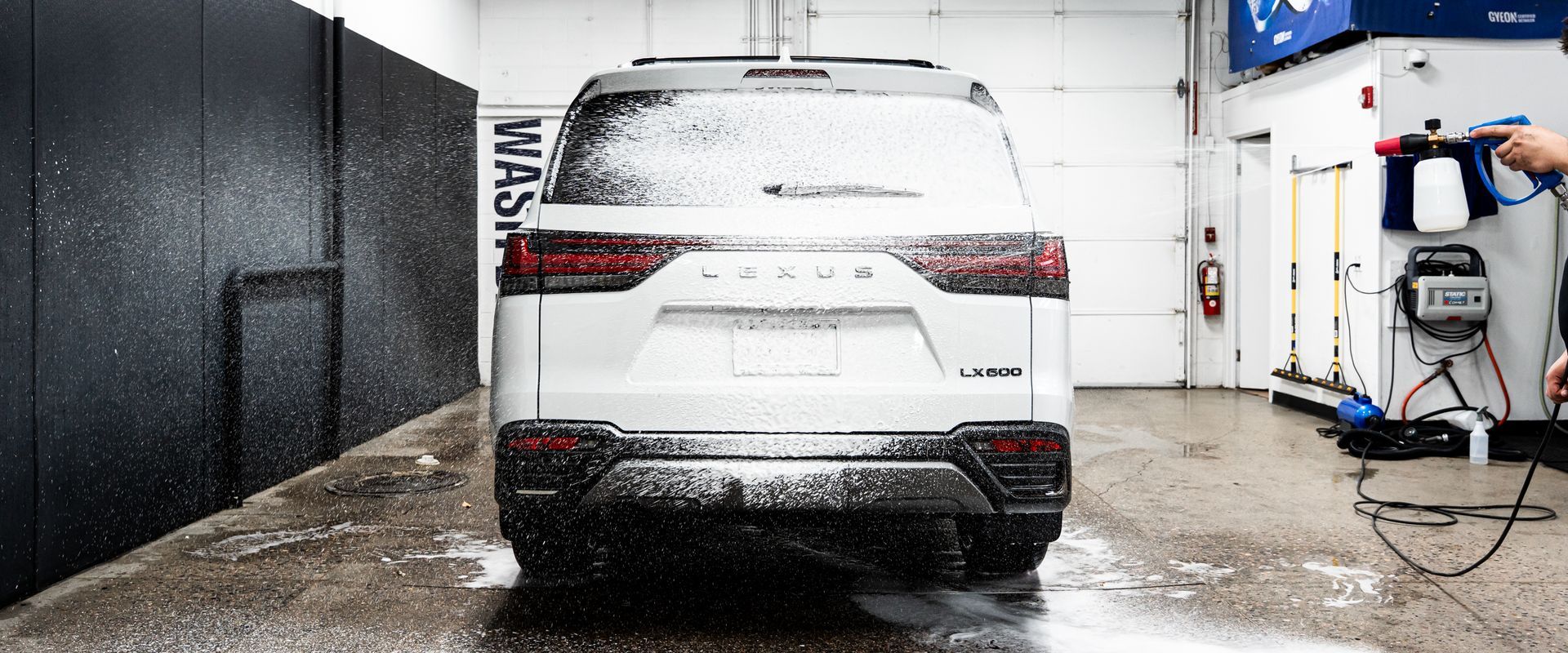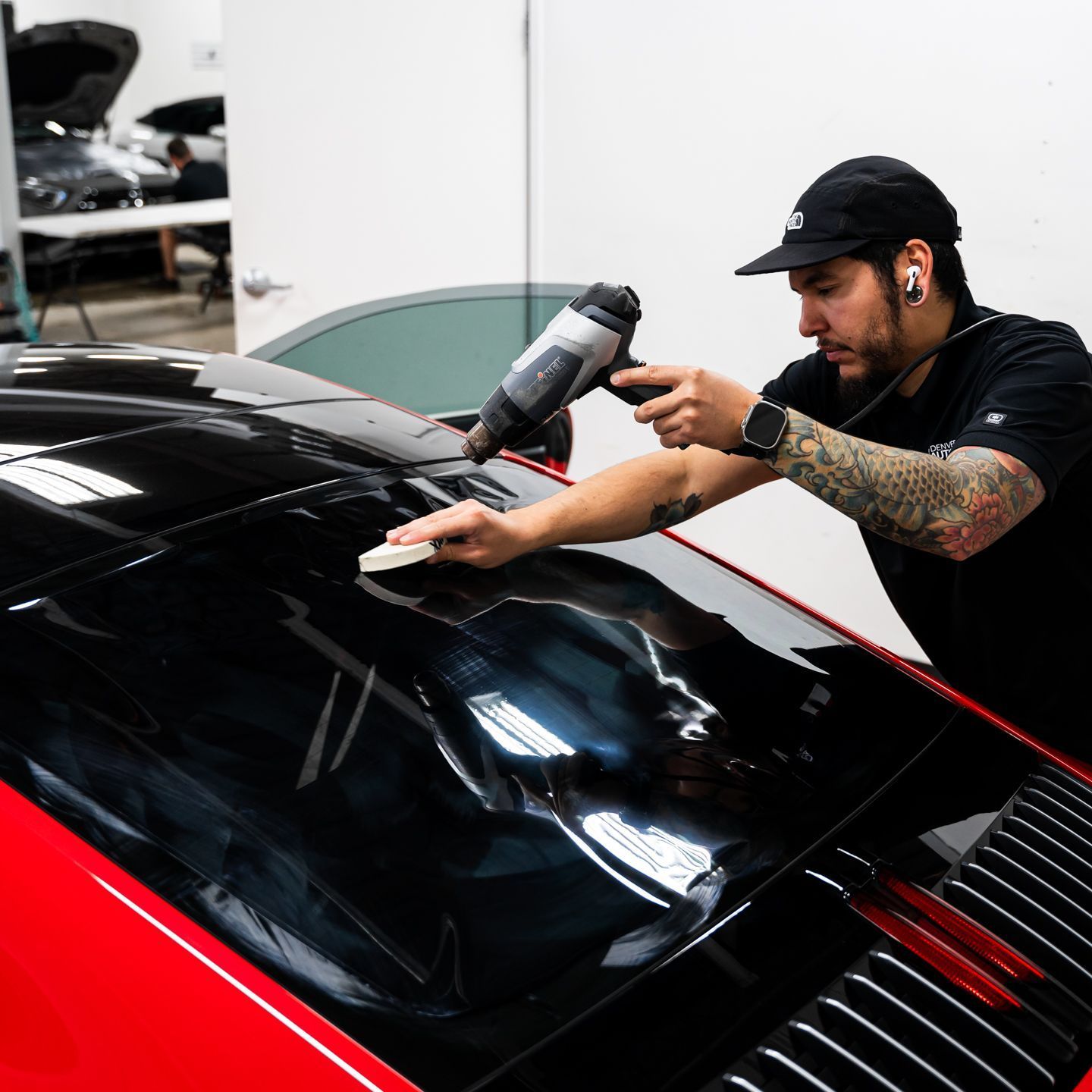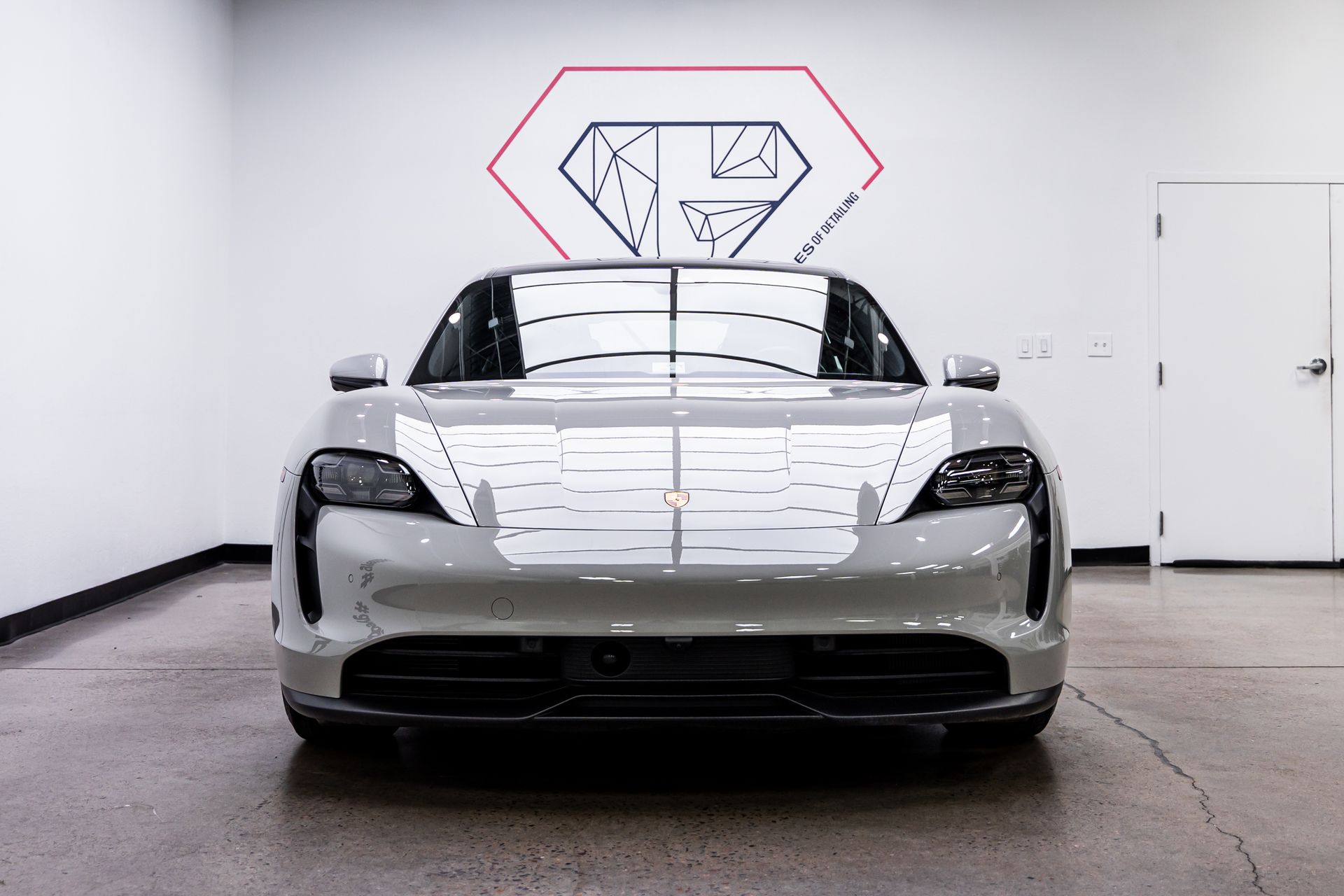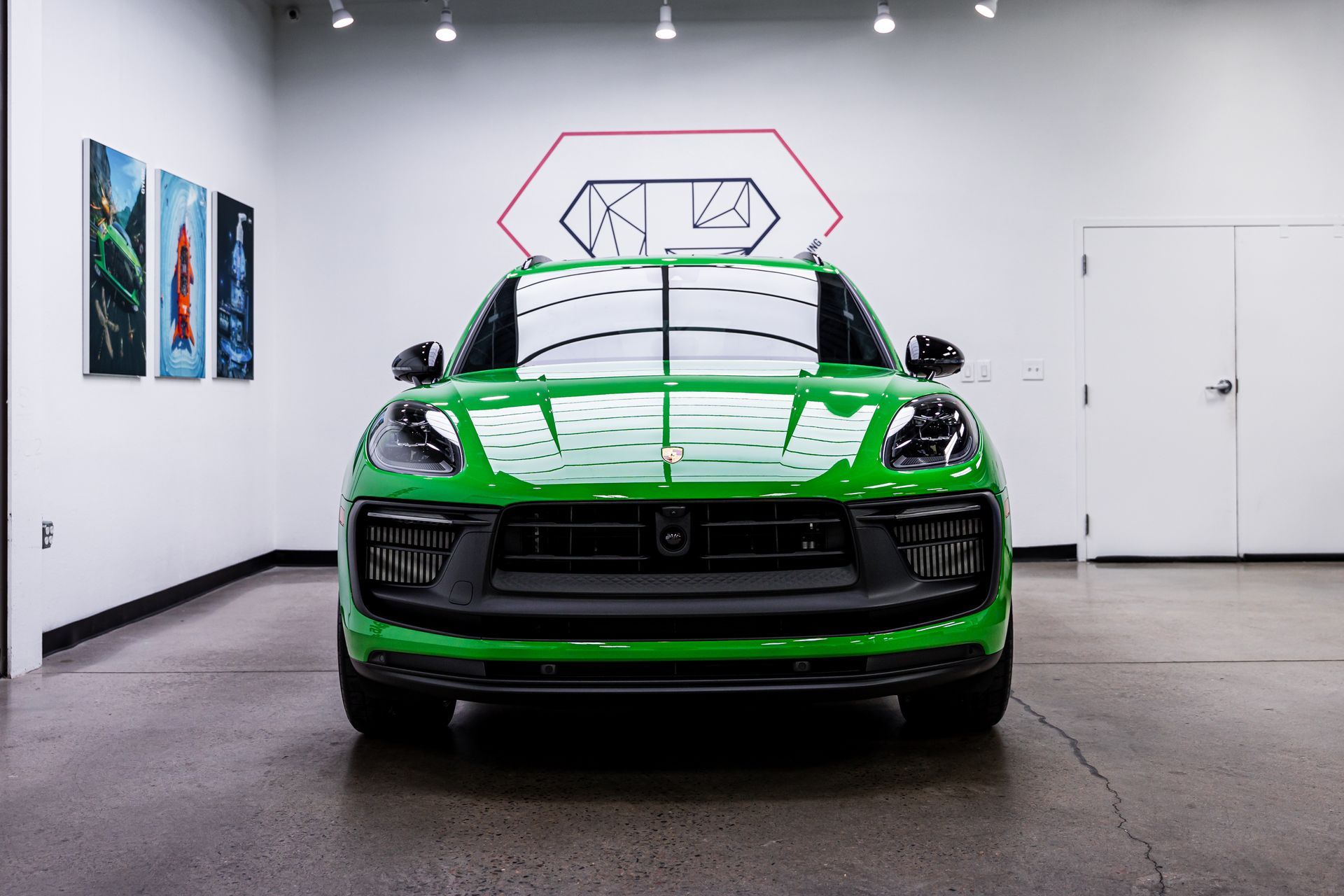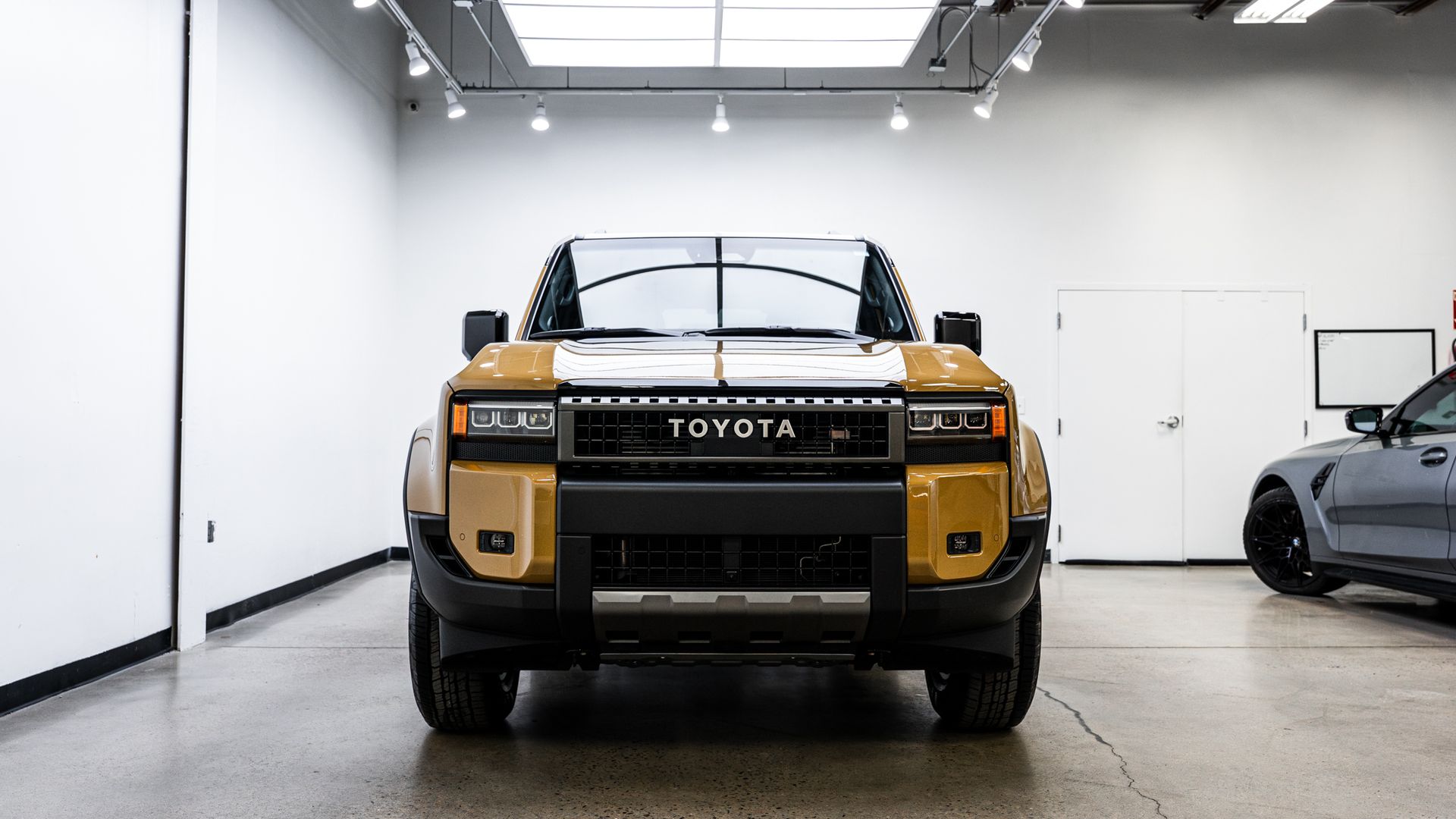Why Window Tinting is a Smart Upgrade for New Car Owners
CALL (720) 662-8520
GET A FREE ESTIMATEIf you've just bought a new car, the excitement of that shiny, pristine vehicle can be overwhelming. But have you considered giving it an upgrade that enhances both comfort and functionality? Window tinting is one of those smart additions that might seem like a luxury at first glance, but it's actually packed with real benefits. Not only does it help keep your cabin cooler and protect your upholstery from harmful UV rays, but it also boosts privacy and even adds to your vehicle’s style. Plus, it's a great way to show some love to your investment by enhancing its value down the line.
Window tinting is a smart upgrade for new car owners because it enhances privacy, protects the vehicle's interior from UV damage, and helps regulate cabin temperature by reducing heat. Additionally, well-applied tint can elevate the aesthetic appeal of the car while providing safety by holding shattered glass together in case of an accident.
Top Reasons to Consider Window Tinting
- Protection from UV Rays: One of the standout benefits of window tinting is its ability to protect against harmful ultraviolet (UV) rays. Window film can block up to 99% of these rays, which have been linked not only to skin conditions like cancer but also to premature aging. Just imagine, each time you slide into your car, you're greeted by a protective shield that significantly reduces your exposure. It’s about making smart choices for your health. According to the Skin Cancer Foundation, many drivers spend considerable time behind the wheel without realizing how much UV radiation seeps through unprotected windows.
- Improved Comfort During Hot Weather: Did you know that tinted windows can make a remarkable difference in your driving experience? A typical vehicle without any tint can reach unbearable temperatures—up to 110°F—on a hot day. However, with effective tinting, that temperature can drop dramatically to around 85°F. This significant reduction in heat means a more comfortable ride and an end to those sweltering moments when you first get into your car after it's been parked in the sun. The best part? By blocking out the sun's rays, tinted windows reduce reliance on air conditioning, leading to lower fuel consumption and a more environmentally friendly vehicle overall.
- Enhanced Resale Value: Another major benefit of investing in window tinting is how it can enhance the resale value of your vehicle. Think about it: a well-maintained car with tasteful tinting not only looks stylish but also appeals to potential buyers who recognize the added protection against UV damage and improved comfort features. Many owners suggest that vehicles equipped with quality window tint often command higher prices during resale simply because they are perceived as having additional valuable features. In competitive markets, where every little advantage counts, tinted windows can serve as a unique selling point that sets your vehicle apart from others on the lot.
The practical benefits outlined thus far illustrate just how impactful this upgrade can be. As we continue our discussion, we'll turn our focus toward the specific ways it shields you from harmful rays and keeps temperatures at bay.
Blocking UV Rays and Reducing Heat
UV rays are indeed invisible, yet their potential damage is anything but subtle. These rays not only threaten our skin but can also wreak havoc on the materials within our vehicles. Interestingly, many cars without any tint allow approximately 50% of harmful UV rays to permeate the interiors. This translates to an exponential risk of sunburn for passengers during long drives and substantial degradation for your vehicle.
Skin Protection
Consistently exposing your skin to UV rays significantly increases the risk of skin cancer. Imagine you're driving home from the beach, feeling that sun’s warmth on your skin; it can be easy to forget that this exposure, though pleasant in the moment, accumulates over time. Window tinting acts like protective sunblock for the occupants inside the vehicle—by blocking up to 99% of these harmful rays, it minimizes this health risk considerably. Not only does window tint guard against UV rays’ harmful effects, but it also alleviates pesky discomforts like glare—a common issue every driver experiences. With tinted windows, you can drive without squinting under harsh sunlight, making long drives much easier on your eyes.
Interior Preservation
The harsh reality is that UV rays cause significant deterioration to your car's interior materials over time. Dashboard fading and seat cracks are not merely aesthetic issues; they impact overall vehicle longevity and value. Take car owners in sunny locales like Colorado, where a baked dashboard can seem all too common. These individuals often observe their once-pristine interiors cracking and fading due to relentless sun exposure. However, investing in quality window tint can reduce such damage! This level of protection means that not only do you enjoy a more comfortable ride now, but you're also preserving your investment for years to come.
The benefits of window tinting extend beyond protecting its occupants from harmful rays; it plays a vital role in enhancing the durability and appearance of the entire vehicle. While benefits related to comfort and aesthetics are easily recognized, it's the hidden protection from UV rays and heat that underscores its value as a smart upgrade for new car owners seeking to safeguard their car in the long run.
Enhancing Privacy and Security
Privacy is a growing concern in an era of heightened security awareness, and one of the most effective methods of achieving it in your vehicle is through window tinting. Tinted windows create a barrier, making it challenging for outsiders to see inside your vehicle. This not only helps preserve your sense of personal space but also protects you from unwanted attention while on the road. Imagine navigating through a bustling city or parking your car in a busy lot; you’ll feel more at ease knowing that prying eyes can't easily catch sight of your belongings or personal activities inside your car.
This benefit becomes even more relevant if your daily commute involves passing by areas with high pedestrian traffic or if you often leave valuable items in plain sight. Knowing that your laptop bag or gym equipment isn't clearly visible can save you from potential break-ins. In addition to maintaining privacy, tinted windows significantly contribute to vehicle security. Thieves often look for easy targets; when valuables are concealed from view, they’re less likely to attempt a break-in. Window tint acts as a deterrent since criminals know that without seeing what’s inside the car, their chances of finding something worth stealing diminish substantially.
Vehicles with professional-grade tinted windows are less likely to be broken into compared to those without any tint at all. This underscores the importance of effective window film in preserving not just your peace of mind but also enhancing the overall safety of your belongings. Different types of window tint materials cater to these benefits in varying degrees, meaning you have options when selecting the kind that best suits your needs and preferences. Understanding these various options can help ensure that you achieve both aesthetic appeal and practical benefits through your investment in window tinting.
Different Types of Window Tint Materials
Not all window films are made the same, and understanding the differences can significantly impact both your driving experience and comfort level. The material you choose is essential, as it directly influences aesthetics, efficiency, and price.
- Dyed Film: Starting with dyed film, this option stands out as the most affordable choice on the market. While it reduces glare from the sun, its thermal protection is somewhat limited compared to other types. A notable downside to dyed films is their tendency to fade over time, leading to a less appealing look. Despite this, many people choose dyed films for their affordability when looking for a basic tint mainly for privacy.
- Metalized Film: This type is known for its durability and contains microscopic metallic particles that cleverly reflect both heat and UV rays. While benefiting from heat reduction, be aware that metalized films can interfere with electronic devices like GPS systems and cell phones. If you don’t use these devices frequently or plan to have alternative navigation in your vehicle, metalized film becomes an attractive option for those seeking strong protection without sacrificing too much on cost.
- Carbon Film: The carbon film offers an excellent compromise between functionality and aesthetics. What sets carbon tints apart is their robust UV protection—they don't fade like dyed options do and provide a sleek matte finish. This makes them popular among individuals who want a luxury feel without breaking the bank. Users often rave about how effective carbon tints are at keeping their interiors cool without feeling overly reflective or distracting from visibility.
- Ceramic Film: These shine in terms of both performance and longevity. They boast superior UV and heat rejection capabilities without affecting electronic signals—no more dropped calls or GPS malfunctions! Although they tend to have a higher initial cost compared to other tints, users quickly find that their durability, combined with high performance, offsets this expense over time. For those looking to invest in their car’s aesthetics and comfort for years to come, ceramic window films make the most sense.
When choosing the tinted film that best suits your needs, consider which benefits resonate most with your lifestyle and preferences. Each type offers something valuable; selecting the right one can truly elevate your driving experience while providing practical advantages that enhance daily comfort.
Legal Considerations for Tint Darkness
The level of allowable tint darkness isn’t just about aesthetics; it’s also governed by laws that vary considerably from one state to another. In Colorado, for example, the front side windows of passenger vehicles must allow at least 27% of light to pass through. That means if you're considering a darker film, you need to make sure it complies with this minimum light transmittance requirement. Rear side windows and the back windshield also follow the same 27% rule for passenger vehicles, offering some room for privacy while still staying within legal limits. These regulations are in place to help ensure driver visibility and safety—especially important on Colorado’s winding mountain roads and during snowy conditions.
Checking Local Laws
When contemplating window tinting, research is your best friend. Don’t rely solely on a friend's experience or a tint shop’s general advice. It's critical to check the most current Colorado-specific regulations, as laws can evolve. Failing to comply with Colorado’s tint laws can lead to penalties, including citations and fines. In some cases, you may also be required to remove non-compliant film and replace it with legal tint—a time-consuming and costly fix. Staying informed and choosing a compliant tint not only avoids legal issues but also keeps you and other drivers safer on the road.
Consulting Professionals
To navigate this maze of legal requirements smoothly, it’s advisable to consult professionals who specialize in window tinting. Skilled tinters not only have a finger on the pulse of local regulations but can also guide you toward products that are compliant while still meeting your needs and preferences. They often keep abreast of changes in legislation and can recommend films that not only look great but also comply with the law. Furthermore, professional installers ensure that your new tints are applied correctly and efficiently. A good installation not only enhances performance but can also prolong the lifespan of the film—saving you time and money in the long run.
With a solid understanding of legal considerations and expert advice at hand, you're well-prepared to enhance both the style and comfort of your vehicle. Next, we will explore the differences between professional installation and taking on this task yourself.
Professional Installation vs. DIY
When it comes to window tinting, opting for professional installation typically proves to be the more reliable choice. Skilled technicians come equipped with industry knowledge and high-quality materials that ensure a perfect, bubble-free finish that DIY kits may not achieve. These professionals not only know how to apply the film seamlessly but also understand the nuances of different window types and tint products. This expertise ensures longevity and effectiveness, as they can select the best option suited for your specific vehicle.
On the other hand, DIY kits can attract those drawn to saving money or exercising their handy skills. It can feel quite empowering to tackle such projects on your own. Think of it like building your own furniture; while there’s great satisfaction in seeing your work come together, there's also room for frustration if things don’t go as planned. Common issues in DIY installations include the formation of unsightly bubbles or improper adhesion that requires correction.
Mishaps during installation could lead to peeling or misalignment. Even worse, any mistakes might necessitate professional intervention later, costing you more than if you had initially chosen the pros. In evaluating whether to choose a professional installer or a DIY kit, consider the potential challenges of self-application against your level of expertise. You must also think about how much time you're willing to invest; while DIY installations can take anywhere from three to six hours depending on one's skill level, professionals generally require only one to three hours.
Ultimately, making an informed decision hinges on weighing these factors against your goals for aesthetic appeal and functional performance—finding that balance will lead you toward satisfying results in tinting your car windows. Embracing professional installation ensures durability and aesthetics for new car owners looking for an upgrade that pays off in both style and functionality.
Professional Window Tinting Services in Lakewood, CO
Transform your driving experience with Denver Auto Shield’s
premium window tinting services in Lakewood, CO. Our high-performance tints provide superior heat rejection, block harmful UV rays, and increase privacy, keeping your vehicle cooler and more comfortable no matter the weather. With our professional installation and a variety of tint options to choose from, you can enhance your car’s look while adding functional benefits that last. Don’t let the sun take a toll on your car or comfort—get in touch with us today to discover the difference our window tinting services can make!
Call us at (719) 849-6075 to get started!
